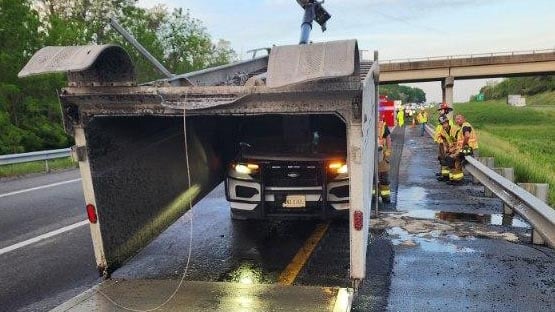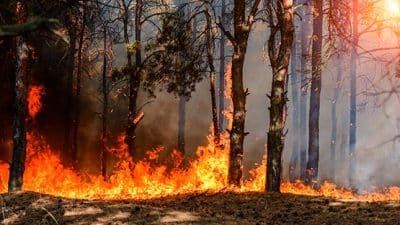
The late-summer 2023 COVID surge has plateaued, with the Virginia Department of Health reporting the seven-day average of new cases in the Commonwealth at 618 on Tuesday, down more than 40 percent from a mid-September high.
But because COVID is here to stay, we should be bracing for another surge as the holidays approach, and colder weather forces us indoors.
“Unfortunately, that is the expectation, that we’re going to see another peak of infections due to COVID between Thanksgiving to the New Year’s period, which over the last couple of years was especially a problem,” said Dr. William Petri, an infectious-disease expert at the University of Virginia.
The world has long since moved on from the shutdown part of the pandemic that defined most of 2020 into the first half of 2021, but the up-to-date numbers from VDH tell us that COVID is still very much around, whether we’re masking up, social distancing and listening to the nonsensical arguments from the deniers over the safety and efficacy of the vaccines or not.
God forbid we should ever see the peak from the early winter of 2021-2022, which saw daily COVID case totals in the 20,000-plus range in mid-January just in Virginia.
From that unfathomable-to-us now peak, the 2022-2023 winter surge topped out in the first week of January, with cases in the 2,500-per-day range in Virginia.
That’s still significant, and the news here is, we could be headed back in that direction in the next few weeks.
“The good news is, there’s so much pre-existing immunity from vaccination, and from nearly all of us having had COVID, that we won’t have the huge peak of the most severe infections and, you know, sadly, deaths from the infection that we experienced a couple years ago, so that’s good,” Petri said.
The VDH data bear out that observation from Petri on the reduced severity of COVID. Per the VDH data, Virginia averaged more than 550 deaths per week over a four-week period in the winter 2021-2022 COVID surge; the winter 2022-2023 surge saw that number down below 100 per week; and the summer 2023 surge peaked at nine deaths per week.
A big reason for that is the effectiveness of the vaccines, which despite what the likes of Robert F. Kennedy Jr. and Aaron Rodgers have to say, are not at question in terms of their safety, now that “we’re up to, like, a billion doses administered now,” as Petri noted.
“It is important for all of us, that those of us six months of age and older, all of us, should get the new COVID vaccine this fall, and there’s only two caveats to that,” Petri said. “One is, if you’ve had COVID, or you had one of the boosters recently, wait three months to get that new vaccine. So that’s the one caveat. The other caveat, if you are in the one of 100,000 young men who got myocarditis or pericarditis, an inflammation around the heart, or if you’ve had an allergic reaction to the vaccine is not to get revaccinated.
“That’s very, very few people, so almost all of us should be getting vaccinated,” Petri said.
It’s particularly important for those 65 and over to get vaccinated.
“The majority of hospitalizations are in those who are 65 years of age and older, and most of the deaths, which are still running about 1,000 deaths a week from COVID nationally, are in those who are 75 years of age and older or who are immunocompromised. And so, they especially need to be vigilant, but we probably all need to be vigilant because, you know, if we’re vaccinated, we’re helping to protect them from getting infected,” Petri said.










